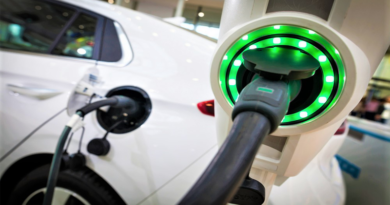Battery Power Sharing, Swap Stations Could Make EVs Affordable

Researchers are working on two solutions for electric vehicles (EVs), including a technology that would allow sharing of stored battery power with another EV and even sell excess energy to make a fast buck, for making the clean vehicles more economical.
Along with the power-sharing tool vehicle-to-everything (V2X), researchers are also examining the feasibility of battery swapping stations where an EV owner would simply replace the batteries like refilling of gas cylinders, Hitesh Datt Mathur, Associate Professor at the Birla Institute of Technology and Science (BITS), Pilani, has said.
The two solutions can make EVs economical as customers would not need to buy expensive heavy batteries which account for around 25-30 percent of the total cost of an EV currently.
The research projects are sponsored by the Department of Science and Technology and the Ministry of Human Resource Development. Mathur, who has designed an EV with V2X technology, said the model is capable of sharing stored power with another EV, a grid, hotels, malls, etc.
“The incentive could be seen by an example where a customer is charging EV with V2X feature at home at Rs 8 per unit and discharging some part of stored power at any commercial place at Rs 15 as commercial rates are higher than domestic rates of electricity,” he suggested.
When the EV is not in use, some parts of stored energy may be sold to others including the grid, another EV customer, even some offices or homes.
If a customer sells 20 units equivalent of power during this discharge, he will have Rs 140 earned. The power grid, at large, during peak hour, can also be supplemented by orderly managed owners of EVs with the V2X feature.
“One can imagine a parking lot of a mall where hundreds of V2X electric vehicles are parked for more than 6-7 hours in a day which is equivalent to a mid-sized power plant of 5 to 10-megawatt range since each electric car has a battery power of 20-25 kilowatts. Even if 30-40 percent of customers decide to sell power to the grid, it would be good enough for that mall itself. All this would be executed through a mobile app,” he said.
“The project will develop a cyber-physical network using artificial intelligence and machine learning algorithms,” Mathur said.
However, the project faces some challenges, he said. The associated infrastructure at various commercial and non-commercial places to enable V2X EVs is a great challenge.
Developing battery swapping stations (BSS) is another aspect of the project as it would make EVs with V2X feature affordable because one does not have to buy a battery of EV that costs approximately 25-30 percent of the total cost of the vehicle, Mathur said.
“This would just be like the refilling of gas cylinders we use. The opening of BSS has a huge commercial opportunity and many private players can be given the option to open a BSS (similar to petrol pumps),” he added. BSS may also have its own renewable power generation sources like solar, wind, etc.
Source: saurenergy.com




